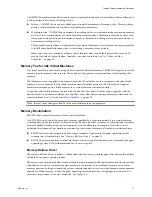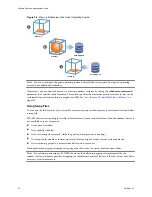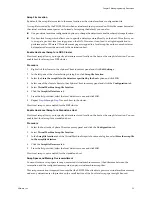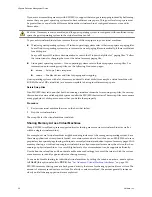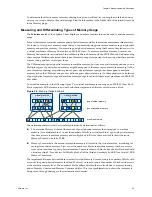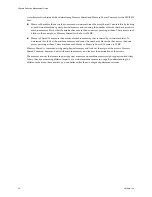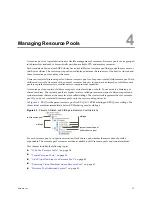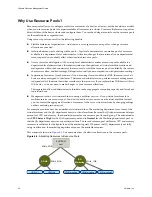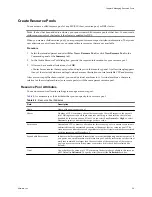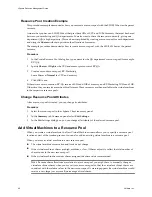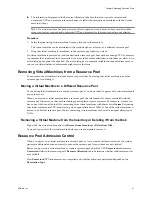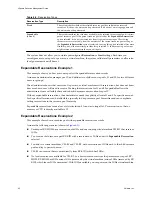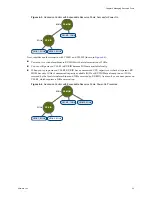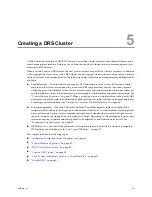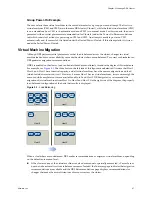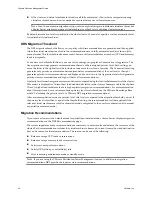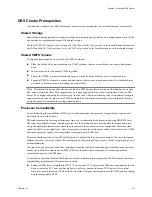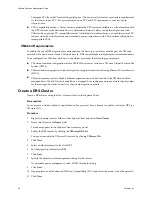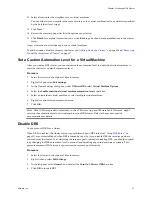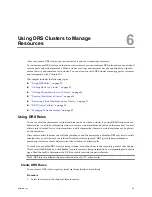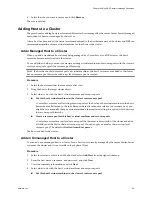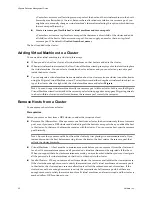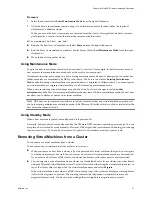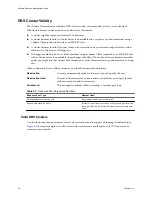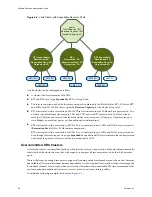
Creating a DRS Cluster
5
A DRS cluster is a collection of ESX/ESXi hosts and associated virtual machines with shared resources and a
shared management interface. Before you can obtain the benefits of cluster-level resource management you
must create a DRS cluster.
When you add a host to a DRS cluster, the host’s resources become part of the cluster’s resources. In addition
to this aggregation of resources, with a DRS cluster you can support cluster-wide resource pools and enforce
cluster-level resource allocation policies. The following cluster-level resource management capabilities are also
available.
n
Load Balancing — The distribution and usage of CPU and memory resources for all hosts and virtual
machines in the cluster are continuously monitored. DRS compares these metrics to an ideal resource
utilization given the attributes of the cluster’s resource pools and virtual machines, the current demand,
and the imbalance target. It then performs (or recommends) virtual machine migrations accordingly. See
“Virtual Machine Migration,”
on page 47. When you first power on a virtual machine in the cluster, DRS
attempts to maintain proper load balancing by either placing the virtual machine on an appropriate host
or making a recommendation. See
“Admission Control and Initial Placement,”
on page 46.
n
Power management— When the VMware Distributed Power Management feature is enabled, DRS
compares cluster- and host-level capacity to the demands of the cluster’s virtual machines, including recent
historical demand. It places (or recommends placing) hosts in standby power mode if sufficient excess
capacity is found or powering on hosts if capacity is needed. Depending on the resulting host power state
recommendations, virtual machines might need to be migrated to and from the hosts as well. See
“Managing Power Resources,”
on page 62.
n
DRS Rules—You can control the placement of virtual machines on hosts within a cluster, by assigning
DRS (affinity or anti-affinity) rules. See
“Using DRS Rules,”
on page 53.
This chapter includes the following topics:
n
“Admission Control and Initial Placement,”
on page 46
n
“Virtual Machine Migration,”
on page 47
n
“DRS Cluster Prerequisites,”
on page 49
n
“Create a DRS Cluster,”
on page 50
n
“Set a Custom Automation Level for a Virtual Machine,”
on page 51
n
“Disable DRS,”
on page 51
VMware, Inc.
45
Summary of Contents for ESX 4.0
Page 6: ...vSphere Resource Management Guide 6 VMware Inc...
Page 44: ...vSphere Resource Management Guide 44 VMware Inc...
Page 52: ...vSphere Resource Management Guide 52 VMware Inc...
Page 72: ...vSphere Resource Management Guide 72 VMware Inc...
Page 80: ...vSphere Resource Management Guide 80 VMware Inc...

